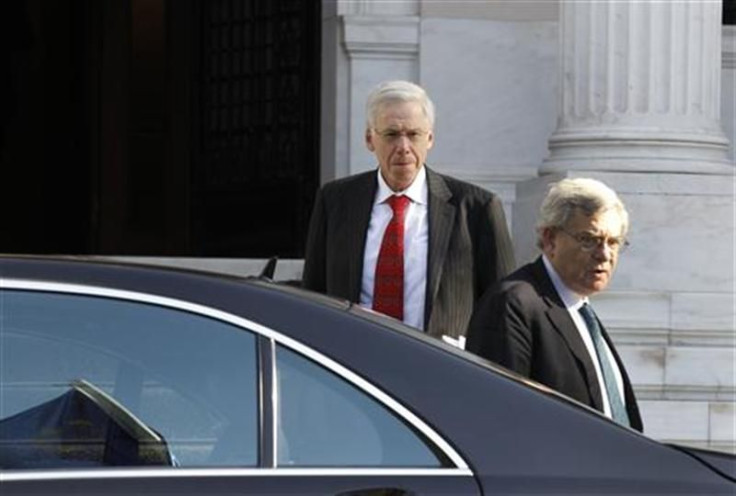Greece Hopes for Debt Deal Soon, Talks to Resume

(REUTERS) -- Greece hoped on Wednesday it could wrap up tortuous negotiations on a debt swap as early as this week when private creditors return to Athens for a fresh round of talks to avert a chaotic default.
After weeks of bargaining, deadlocks and an intervention by euro zone ministers, Greece and its bondholders find themselves back at the drawing board as they search for a compromise needed to clinch a bailout for Athens before it runs out of money.
With time slipping away ahead of a March deadline when Greece faces major bond redemptions, the top negotiator for private creditors, Charles Dallara, returns to Athens on Thursday to resume talks with officials, the government said.
We are now in the most delicate phase of the negotiations to complete the debt swap, government spokesman Pantelis Kapsis told reporters.
It is clear that what happens in the coming days will affect the country's course for years.
The focus is expected to be on whether Dallara budges from what the creditors' billed as their final offer of a 4 percent coupon on new bonds that Greece will swap out for existing debt after euro zone finance ministers rejected that proposal.
Dallara, who is chief of the International Institute of Finance, left Athens over the weekend after the last round of talks proved inconclusive. He has pleaded for a quick resolution before time runs out but has not disclosed whether his group is willing to change its stance on the coupon, or interest rate.
Greece has insisted on a coupon of not more than 3.5 percent at the behest of its European partners worried that the debt swap will otherwise not do enough to rein in the country's massive debt burden.
Without a deal, Greece would tumble into a hard default that risks setting off panic in the financial system and pulling bigger euro zone members like Italy and Spain closer to the brink, though the ECB has helped to assuage those fears by flooding the banking sector with nearly half a trillion euros of three-year money.
Sinking further into recession and gloom, Greece is finding itself in an increasingly precarious state yet again as it confronts difficult debt talks, political dithering and snail-paced reforms that have exasperated lenders.
STRUGGLING REFORMS
On top of its list of tasks is the debt swap that must be wrapped up quickly in order to seal a 130 billion rescue plan that European partners and the International Monetary Fund drew up in October.
There could be trouble even if there is a quick conclusion of the swap, which is aimed at chopping 100 billion euros off Greece's 350-billion-euro debt load by getting bondholders to accept a 50 percent nominal writedown on their holdings.
Public sector holders of Greek debt, like the European Central Bank, may end up having to write down their holdings if the private sector restructuring is unable to make Greece's debt burden sustainable, IMF chief Christine Lagarde warned.
Greece has already threatened to include a clause enforcing losses on investors if fewer than expected bondholders sign up to the deal voluntarily.
Even with a successful debt swap, Greece faces trouble on other fronts. Beset with squabbling politicians and entrenched special interests, the country has made little headway in pushing through a host of labor and economic reforms demanded by lenders as a condition for bailout funds.
Underscoring lenders' fears that Greece cannot come to grips with the reforms it has promised, dissenting lawmakers overnight defeated a clause to deregulate working hours for pharmacies in a liberalization package passed by parliament.
The measures had been demanded by the troika lenders, whose inspectors were in the Greek capital as parliament voted down the clause and came close to scrapping other provisions of the law.
Greek authorities on Wednesday morning dispersed a protest by a few hundred Communists who had gathered outside a hotel where EU and IMF officials were staying. The demonstrators had shouted slogans and held up banners reading Out with the troika.
This was a symbolic action to show our opposition to the troika's presence in Greece and to the government's proposals ... that mutilate workers' rights, said Communist KKE party lawmaker Nikos Karathanassopoulos.
European partners like paymaster Germany have already warned that Greece must follow through on its reform pledges or put its second bailout at risk. They have demanded that all political party leaders must commit in writing to back reforms.
(Additional reporting by Harry Papachristou; writing by Deepa Babington; editing by Stephen Nisbet)
© Copyright Thomson Reuters 2024. All rights reserved.











